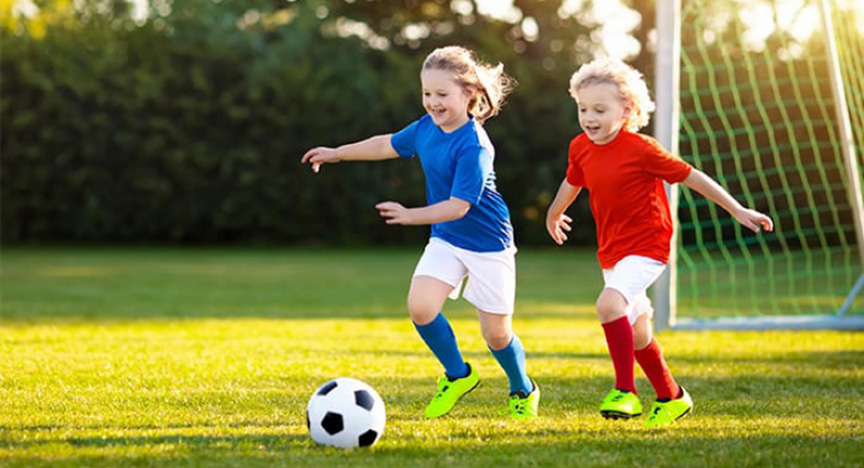
When it comes to better health for our kids, the whole day matters. Balancing time spent being active, sleeping, and sitting is vital, but striking that balance can be tricky – and it can be hard to know just how much of each activity is enough.
That’s where the 24-Hour Movement Guidelines for Children and Young People come in. The latest guidelines provide parents, carers, and educators with tips to support healthy daily practices and routines for children and adolescents aged 5 to 17 years.
We’ve broken these guidelines down so you know exactly what your child needs, and how to achieve it.
Physical activity
Children and young people should aim to get at least 60 minutes of moderate to vigorous physical activity every day. Anything that makes kids ‘huff and puff’ counts. It doesn’t have to be all at once though; smaller bursts of activity during the day count towards the 60-minute daily target.
At least three days per week, activity should be vigorous – think basketball, soccer, netball, and swimming laps, or any other activity that gets the heart pumping! Activities that also strengthen growing muscles and bones include skipping, running, jumping, climbing trees, swinging on monkey bars, sit-ups, push-ups, and yoga.
Moderately-intense activities like bike riding, walking, skateboarding and scootering also add to the 60-minute daily target.
Light activities such as leisurely walking and playing handball keep kids moving and are also an important part of the day, but don’t count towards the 60-minute daily target.
Any type of physical activity is better than none. Swapping sitting activities for being active can support better health for kids. Try these tips:
- Swap a drive to the local shops for a bike ride
- Get off the bus a stop earlier and walk
- Meet friends for a game in the park
- Be active as a family, like going on a nature walk
Check out these 23 free ways to get kids active this weekend.
Sedentary behaviour and screen time
Sedentary behaviour refers to prolonged time sitting or lying down (excluding sleeping).
Playing video games, watching TV, and other recreational screen time activities should be limited to two hours per day, and time spent sitting should be broken up as often as possible.
For children and young people, screen time is a major contributor to sedentary behaviour. Long periods of sitting can counteract the benefits of physical activity, so reducing sitting time is important no matter how active our kids are.
To achieve a healthy balance, parents and carers can:
- establish boundaries by setting screen time limits
- encourage positive social interaction and experiences when using screen-based electronic media
- set a positive example by minimising your own screen time.
Sleep
Each night, children (5-13 years) should have 9 to 11 hours of uninterrupted sleep.
Young people (14-17 years) should get 8 to 10 hours of uninterrupted sleep every night.
Children and young people need quality sleep to recover, repair, and rest after a day of learning and being active. Getting adequate sleep helps kids to wake up and participate fully in in their school day and after school activities. It gives them the energy they need to play sport, be creative, socialise, tackle their homework, and stay off the couch! Likewise, being active during the day helps kids to sleep better.
Follow these tips to support healthy sleep patterns for children and young people:
- Have a consistent bedtime routine – try not to vary bedtime and wake-up times by more than 30 minutes
- Avoid screen time for at least one hour before bedtime
- Make bedrooms screen-free zones
Why balance matters
Striking the right balance between physical activity, sedentary behaviour, and sleep can help children and young people to:
- improve cardiovascular fitness (healthy heart and lungs)
- improve strength and posture (healthy muscles and bones)
- maintain a healthy weight
- support better mental health, self-esteem, and confidence
- do their best at school and in other learning activities
- better regulate their emotions
- enhance their social skills.
We know changing routines can be challenging at times. Remember that every step taken to achieve the right balance will help your children be stronger, smarter, healthier, and happier.
About the guidelines
The Australian 24-Hour Movement Guidelines for Children and Young People (5 to 17 Years) are relevant to all apparently healthy children and young people. They may be appropriate for children and young people with medical conditions or a disability, however we recommend speaking with a health professional for additional guidance.